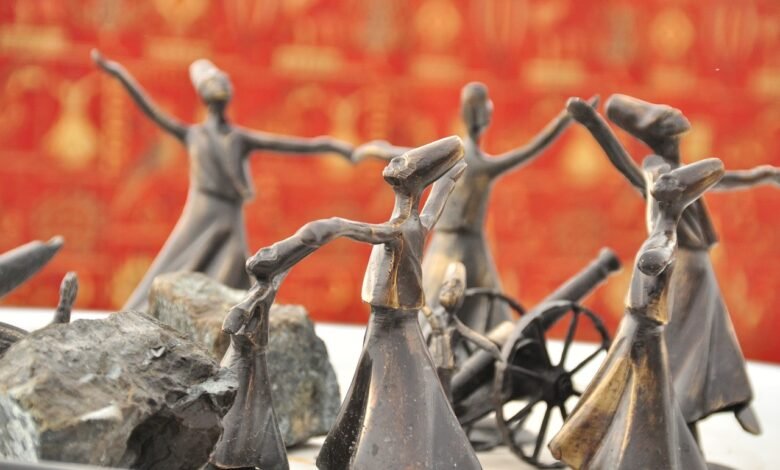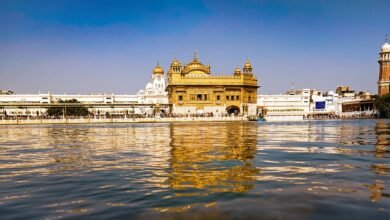
Sufism, a mystical form of Islam that emphasizes inner spirituality and direct personal experience of God, has deep roots in Pakistan. The country is home to numerous Sufi saints, shrines, and traditions that continue to inspire millions of devotees. Sufism’s influence is evident not only in Pakistan’s religious life but also in its culture, music, and literature.
The Roots of Sufism in Pakistan
Sufism was introduced to the Indian subcontinent by early Muslim missionaries, traders, and mystics, who brought with them a message of love, tolerance, and devotion. These Sufi saints, or pirs, played a significant role in spreading Islam across the region. Their message of spiritual equality and compassion resonated with the local population, leading to the widespread adoption of their teachings.
Some of the most revered Sufi saints in Pakistan include:
- Data Ganj Bakhsh (Hazrat Ali Hujwiri) in Lahore
- Lal Shahbaz Qalandar in Sehwan Sharif
- Bahauddin Zakariya in Multan
- Baba Farid in Pakpattan
- Shah Rukn-e-Alam in Multan
These saints are not only revered for their spiritual wisdom but also for their contributions to the social and cultural life of the communities they served.
Major Sufi Shrines in Pakistan
- Data Darbar (Lahore):
The shrine of Hazrat Ali Hujwiri, known as Data Ganj Bakhsh, is one of the most significant Sufi sites in Pakistan. Located in Lahore, this shrine attracts thousands of visitors, particularly during the annual Urs festival, when devotees come to pay their respects and seek blessings. - Shrine of Lal Shahbaz Qalandar (Sehwan Sharif):
One of Pakistan’s most famous Sufi shrines, Lal Shahbaz Qalandar’s tomb is located in Sindh. His message of peace and spiritual transcendence is celebrated through the famous dhamaal (Sufi dance), particularly during his Urs, which attracts millions of followers. - Shrine of Bahauddin Zakariya (Multan):
Bahauddin Zakariya was a leading figure in the Suhrawardi Sufi order. His shrine in Multan, the “City of Saints,” is a major spiritual center, especially during the annual Urs festival. - Shrine of Baba Farid (Pakpattan):
Baba Farid, a Chishti Sufi saint, is known for his deep spirituality and poetry. His shrine in Pakpattan is a significant pilgrimage site, drawing thousands of devotees during his Urs. - Shrine of Shah Rukn-e-Alam (Multan):
Another prominent shrine in Multan, Shah Rukn-e-Alam, was a Sufi saint of the Suhrawardi order. His shrine is a striking example of Islamic architecture and a place of deep spiritual devotion.
Sufi Practices and Influence
Sufi practices in Pakistan revolve around music, poetry, and spiritual gatherings known as mehfil-e-sama or qawwali. These gatherings aim to induce a state of divine ecstasy and connection with God. Qawwali music, made famous globally by singers like Nusrat Fateh Ali Khan, is an essential part of Sufi culture in Pakistan.
In addition to qawwali, dhamaal (a devotional dance) is another form of Sufi expression, often performed at shrines, particularly at Lal Shahbaz Qalandar’s shrine.
Sufism also plays a role in fostering interfaith harmony and inclusivity, as its teachings emphasize love and compassion over rigid orthodoxy.
The Cultural Legacy of Sufism
The influence of Sufism extends beyond religion into various aspects of Pakistani culture:
- Music: Sufi music, especially qawwali, is a profound element of Pakistan’s cultural identity. The poetic verses of Sufi saints have been immortalized in songs and continue to inspire contemporary musicians.
- Literature: The poetry of Sufi saints like Baba Farid and Bulleh Shah has a timeless appeal, blending mysticism with social commentary. Their works are studied and cherished across generations.
- Festivals: Urs festivals, celebrating the death anniversaries of Sufi saints, are major cultural events in Pakistan. These festivals feature qawwali performances, communal meals, and prayers, attracting people from all walks of life.
Conclusion
Sufism remains a vibrant and influential spiritual force in Pakistan. With its message of love, tolerance, and unity, it continues to inspire devotion among millions, shaping the religious and cultural landscape of the country. The Sufi shrines, music, and traditions offer a unique glimpse into the mystical heritage of Pakistan, where spirituality is intertwined with everyday life.



